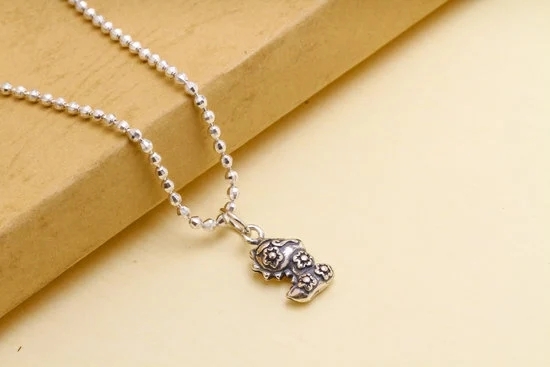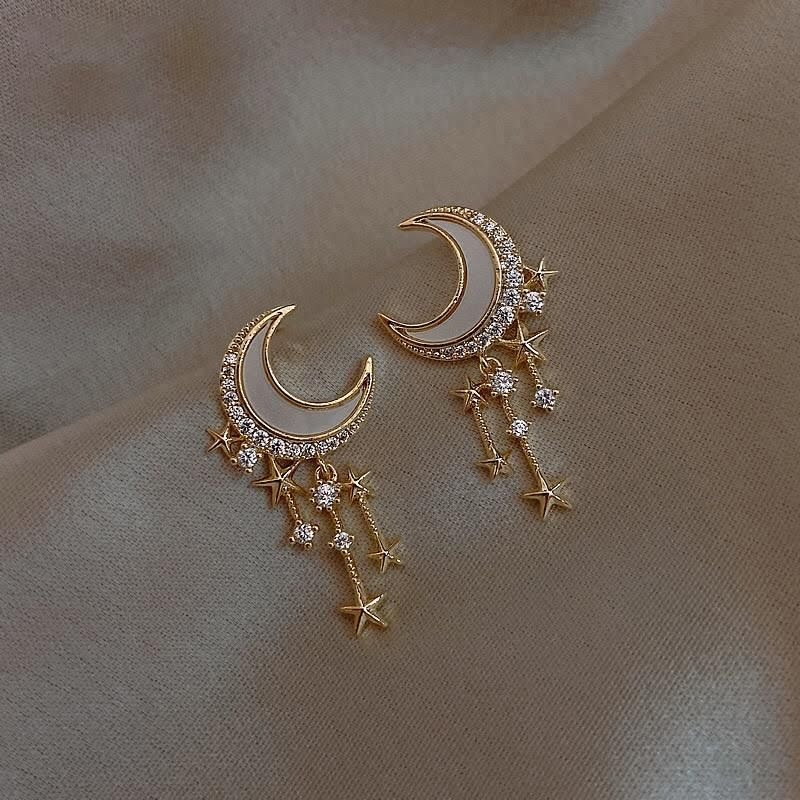Making jewelry cleaner with vinegar provides a great natural solution for keeping your favorite jewelry pieces looking pristine and sparkling. The use of vinegar as a cleaning agent dates all the way back to Greek and Roman times, so it is steeped in both tradition and efficacy.
Vinegar is composed of acetic acid which is a mild, but incredibly effective, cleaner that can have amazing results when used on even the most delicate of jewelry pieces. This is why it makes such an excellent alternative to harsher, and more costly, jewelers cleaning agents; plus it’s easy to find and often already sitting in your kitchen.
Benefits: Summarize the various benefits of using vinegar to clean jewelry One thing that makes making jewelry cleaner with vinegar so attractive is the fact that there are many visible positive results seen after just one application. Not only does vinegar effectively remove build-up from dirt and grime, but it also lifts monoxide buildup off gold though especially helpful when cleaning stainless steel watches to restore its shine.
Vinegar’s acidity helps to break down oils like soap scum or lotions that can accumulate on the surface over time. Plus, there is no need to use anything else but a cloth or cotton swab because you don’t need any additional cleaning tools which helps save money in the long run.
Instructions: Add instructions on how to use vinegar as a jeweler cleaner When using vinegar to clean your jewelry, start by diluting white vinegar with an equal part water in a small bowl. After carefully submerging your item in solution for 30 seconds, take out the piece and lightly scrub with a brush meant for fragile materials like gems or gold metals.
It is important not to use too much pressure or too stiff of bristles which could scratch away at sensitive pieces; gentleness combined with regular effort should be applied at all times.
After rinse briefly under lukewarm running water until no trace of grime remains then wipe carefully with a dry cloth before leaving out thoroughly air dry in cool space away from direct sunlight as this can discolor precious stones like turquoise or opals depending on what type of stone you have chosen.
Types of Jewelry That Can Be Cleaned With Vinegar
Suitable for Cleaning with Vinegar
Vinegar is a great way to clean jewelry such as gold, silver, and bronze. Gold jewelry especially benefits from cleaning with vinegar as it is a natural luster restorer and tarnish remover. Gold jewelry should be cleaned regularly to maintain its shine.
Silver jewelry also does well with vinegar because the acidity helps to remove tarnish that may build up over time. Bronze jewelry can do well with vinegar too. The acids in the vinegar help to break down any dirt or buildup that may have accumulated over time.
Not Suitable for Cleaning With Vinegar
However, there are some types of jewelry that should not be cleaned with vinegar. One type of jewelry that should not be cleaned with vinegar is costume jewelry, as these pieces often feature stones or finishes that could be damaged by the chemicals in the solution.
Additionally, pearls and opal should never be cleaned using vinegar because their porous surface can easily be harmed by the acidity of the solution. Additionally, stainless steel and tungsten jewelry will also not do well when exposed to the acidity of vinegar as it can strip away their finish and dull their appearance over time.
Know When To Use Vinegar For Your Jewelry
It’s important to know what types of jewels are suitable for cleaning with vinegar before you start cleaning your own pieces at home. When done correctly, it’s a great way to restore shine without damaging your expensive items but if done incorrectly it could harm items beyond repair.
It’s best practice to only clean silver or gold jewelry with vinegar and avoid doing so on costume pieces or those featuring pearls or opals entirely. Doing so will ensure your jewelry pieces maintain their sparkle for years to come.
Setting Up a Cleaning Station
When it comes to preventing damage to your jewelry, using the right supplies is essential. That’s why it’s important to invest in a jewelry cleaning station. A good place to start would be a container of lukewarm water combined with a small bowl of white vinegar and a soft cloth. For more delicate pieces, you can also add a soft brush for extra scrubbing power.
Avoid Harsh Detergents
Soap and detergent may seem like a good option when it comes to cleaning your jewelry, but they can actually be quite harsh on the metal and can cause long-term damage. Instead, white vinegar has proven to be an effective cleaning agent that won’t harm your precious items as much as harsh detergents will.
Opt For White Vinegar
One of the major benefits of choosing vinegar over detergents is that it is easy to use and relatively inexpensive too. It also has other disinfecting qualities which makes it a great choice for those concerned about harming additional bacteria which could exist on the surface of their jewelry pieces.
All you need to do is take equal parts warm water and white vinegar; mix them together until they are blended into what looks like milk. Then simply soak your jewelry for 15-30 minutes in this solution for optimal results.
Drying & Buffing Your Jewelry
Once you have finished soaking your pieces in the water/vinegar mixture, it’s time to dry them off with a soft cloth or air dry if desired. Be sure not buff any pieces if needed for shine or color conservation reasons because this could damage the metal further or lead to discoloration depending on materials used in the item design.
Utilizing only gentle strokes with crucial caution should help bring out those desired polished looks without putting any stress onto metals or gemstones within these jewels over time.
Step-By-Step Guide to Make Jewelry Cleaner with Vinegar
Vinegar is an excellent way to clean your jewelry. It’s easy to make a DIY jewelry cleaner with vinegar that will remove dirt and restore the sparkle of precious metals like gold and silver. Here’s how to make and use your own homemade jewelry cleaning solution.
Step One: Decide which type of Vinegar to use
The best type of vinegar for cleaning jewelry is white vinegar because it doesn’t contain any harsh chemicals or abrasives that could damage the metal. For delicate pieces, you can also use apple cider vinegar or rice wine vinegar as they are gentler on the jewelry.
Step Two: Assemble Your Supplies
To create your own homemade jewelry cleaner with vinegar, you will need the following supplies:
- 1/4 cup white vinegar
- 1 teaspoon dish soap
- An old toothbrush
- A soft cloth
Step Three: Create Your Jewelry Cleaner Solution
In a bowl of warm water, add 1/4 cup of white vinegar and 1 teaspoon of liquid dish soap. Stir until the mixture has dissolved completely. Dip your old toothbrush in the solution and gently scrub jewellery to remove any dirt or debris. Be careful not to use too much force, as this could scratch softer metals like gold or pearls. Rinse off the solution with warm water when finished.
Step Four: Dry Off Your Jewelry with a Soft Cloth
After rinsing, use a soft cloth to dry off any excess moisture from the jewellery piece so it does not tarnish in storage. You can also use a polishing cloth specifically designed for jewellery if you have one available at home.
Tips for Making Jewelry Cleaner with Vinegar
Making your own jewelry cleaner at home using vinegar can be a great and cost-effective way to keep your favorite jewelry sparkling and looking new. While it is possible to clean jewelry without any additional tools, it’s usually much easier and remains gentle on the delicate pieces when you have some sort of supplement.
Soft Bristle Toothbrush
A soft bristled toothbrush can work wonders on many different types of jewelry, including those which are set with gemstones or small intricate detailing. Soaking the fabric-covered brush in the vinegar solution for several minutes before tackling the harder-to-reach areas of a piece can make an otherwise daunting task much more manageable.
Pay particular attention to each area and take care not to use too much pressure as this may cause stones to become loose from their setting or even risk breaking them entirely.
Cotton Swabs
In cases where a soft bristle brush isn’t appropriate, cotton swabs are another great tool for cleaning delicate jewelry. They’ll let you expertly access tight spaces between gems or carve out detailed sections within rings or bracelets ensembles where dirt often easily accumulates over time.
As with the soft brushes, soak the cotton swabs in the vinegar before commencing any cleaning process so that you’re able to advance more effectively through difficult spots in one easy swipe without having to continuously add more liquid as needed.
Soft Cloth
For fine pieces like gold chains – or any other type of finished metal item that’s been worked into a special design – it helps to gently wipe away residual grime with a dampened soft cloth after cleansing with vinegar & water solution. A microfiber cloth is best for avoiding accidental scratches on more delicate materials while still being highly absorbent enough also generate a nice streak & shine across larger profiles too following treatment.
Common Mistakes to Avoid
When it comes to cleaning jewelry, using vinegar is a cost-effective and an effective way of cleaning it. However, there are also certain mistakes that should be avoided when cleaning different types jewelry with vinegar. Doing so could result in irreparable damage or even the loss of valuable pieces.
For example, vinegar should never be used when cleaning pearls. The acid content present in the liquid can dissolve the pearl’s nacre and cause discoloration or fading. Therefore, specialized products or solutions specifically made for this purpose should be used. Additionally, an ultrasonic cleaner should never be used on delicate stones such as turquoise or opal due to their soft nature, which can cause them to break or crack when exposed to the strong vibrations produced by this machine.
Furthermore,using too much vinegar when cleaning silver jewelry can lead to damage or tarnish if not properly rinsed away. Too much exposure may result in a grey film on the surface of the jewelry item from the silver sulfide particles that are actually removed during the cleaning process but are left behind if not completely washed off and dried afterwards.
In order to avoid any issues it’s important try out various dilution techniques while using minimal amounts of liquid needed for only light soiling and dirt spots.
List Tips To Remember
- Do not use Vinegar on Pearls
- Never clean delicate stones with Ultrasonic Cleaner
- Be aware not use too much Vinegar when cleaning Silver Jewelry
- Cautiously rinse away all Vinegar residue
FAQs
What Type of Jewelry Can You Clean With Vinegar?
Vinegar can be safely used to clean all types of jewelry from precious metal and gemstones to costume jewelry. Avoid using vinegar on pearls, opals or turquoises. These stones are particularly sensitive to acid and scrubbing and can become dull if exposed to vinegar.
What Are the Benefits of Using Vinegar?
A mild acid like vinegar will help dissolve dirt and grime that has built up on your jewelry over time, revealing its natural shine and beauty. Additionally, it’s a much cheaper option than purchasing a commercial jewelry cleaning solution.
How Do You Make Jewelry Cleaner With Vinegar?
To make a jewelry cleaner with vinegar, mix 1 part white distilled vinegar with 2 parts warm water in an container that is big enough for you to submerge the piece of jewelry. Drop the jewelry into the mixture and allow it to soak for 10-15 minutes.
After soaking, use an old toothbrush or cotton swab to scrub away any remaining dirt or grime. Once you have cleaned the jewelry, it’s important to rinse it off thoroughly with cold water before wearing it again.
Conclusion
Vinegar is a natural cleaning product that can easily be used to make effective jewelry cleaner. It works by breaking down any dirt, grime, and debris that has built up on jewelry over time. When combined with warm water, it creates a powerful solution that can effectively clean most types of jewelry. The procedure is simple and inexpensive, making it an ideal DIY project for anyone eager to make their own jewelry cleaner.
One of the benefits of using vinegar in a jewelry cleaner is its ability to restore and preserve shine on various pieces of jewelry. Due to the acetic acid content of vinegar, tarnish and discoloration can often be eliminated with just a few minutes in a vinegar-water mixture.
It is important to note, however, that this solution should not be used on pearls or ceramic items as they tend to erode when exposed to the acidity in vinegar. Jewelry containing softstones such as turquoise, lapis lazuli or malachite should also not be submerged in a vinegar-based cleaner as this may cause them to become brittle or crack due to the acidic nature of the solution.
By combining vinegar with other common household items such as baking soda and dish soap, one can create an even more effective jewelry cleaning solution. When mixed together these ingredients provide powerful scrubbing agents capable of lifting away stubborn dirt and grime without damaging delicate jewelry pieces.
For example, one might mix equal parts vinegar with baking soda and/or dish soap before adding enough warm water to create a paste-like solution. This slurry can then be gently rubbed onto gold or silver items before being soaked in warm water for several minutes before being rinsed off with fresh water ensuring all sudsy residue is removed from the surface of the item being cleaned.
The versatility of using white distilled or apple cider vinegar makes it an ideal choice for creating homemade cleaning solutions suitable for almost any type of jewelry item including necklaces, rings, earrings and more. With just a little bit effort one can avoid pricey commercial cleaners while still getting great results thanks to the restorative power provided by household staples like baking soda,, dish soap and white distilled vinegar.

Welcome to my jewelry blog! My name is Sarah and I am the owner of this blog.
I love making jewelry and sharing my creations with others.
So whether you’re someone who loves wearing jewelry yourself or simply enjoys learning about it, be sure to check out my blog for insightful posts on everything related to this exciting topic!





